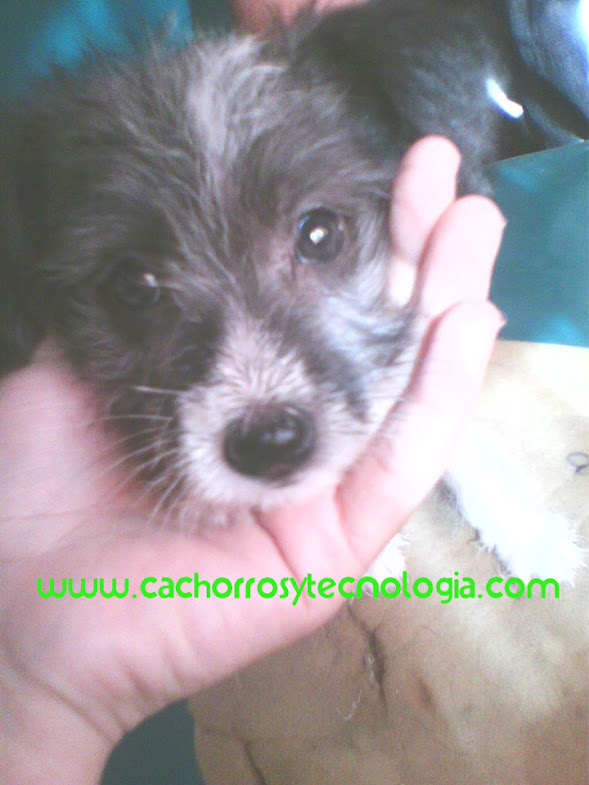En ocasiones se ha escuchado hablar sobre la esquizofrenia en perros debido a actitudes extrañas. A veces son formas incluso agresivas las que algunos canes han tenido con sus dueños o personas de su entorno. ¿Es posible que los peludos tengan esta enfermedad?
Saber la respuesta a esta pregunta puede callar muchos interrogantes que tengas sobre las conductas de tu mascota. Por ello hemos creído necesario informarte sobre el tema.
¿Existe realmente la esquizofrenia en perros?
Es más de una ocasión hemos hablado de enfermedades como las nuestras que los animales pueden tener, incluidas la depresión y el estrés.
Los científicos opinan que los perros pueden sufrir trastornos mentales igual que los humanos. El neurocirujano Phil Weinstein dijo: “las estructuras cerebrales subyacentes involucradas en las respuestas ante muchas situaciones no son tan diferentes como puede parecer”.
Para entenderlo: el “hardware” cerebral de los animales no es tan diferente al nuestro. Por ello pueden desarrollar la misma respuesta ante las emociones que los humanos. Esto sucede tanto en animales inteligentes como en los que no lo son.
La esquizofrenia, según los estudios sobre ella, afecta a formas complejas de pensamiento. Es decir, que se podría llegar a pensar fácilmente que solo afecta a humanos.
No obstante, un estudio que se publicó en “Frontiers in Human Neuroscience” analizó varios genes que se asocian a esta enfermedad de 45 clases diferentes de mamíferos.
Esto demuestra que los animales, incluidos los perros, sí pueden tener esquizofrenia y otros tipos de trastornos mentales.
Cómo saber si mi perro tiene esquizofrenia
La esquizofrenia se demuestra por las actitudes. Observar a tu perro constantemente puede dejarte saber si tu can sufre este mal. Un cambio de comportamiento fuera de lo común podría dejarlo claro. Estos son algunos:
- Darse golpes. Si de repente tu perro se golpea la cabeza o cualquier parte de su cuerpo con los objetos o una pared, y lo hace de forma deliberada, es muestra de que algo no va bien.
- Agresividad. Tu mascota debe recibir bien las muestras de cariño por tu parte y el resto de los miembros de la familia. Si lo está haciendo, y de repente gruñe o incluso intenta morderos, es posible que sea una señal de esquizofrenia en perros.
- Peleas. Si busca pelea con todos los perros cuando nunca lo ha hecho, o incluso con tus amigos o visitas en casa, puede ser que algo no vaya bien en su cabecita.
- Ladridos sin sentido. Si tu perro solo ladra por los ruidos o cuando viene alguien a casa, y ahora lo hace a todas horas y sin razón aparente, quizá sea hora de examinarlo.
Estos son signos de que tu can puede estar sufriendo esta afección. No obstante, para determinar con certeza que tu perro tiene esquizofrenia, es necesario que acudas al veterinario.
"Lo que distingue lo real de lo irreal está en el corazón"
*John Forbes Nash*
Este le hará los exámenes precisos para dar un veredicto seguro, e intentará probar con la medicación oportuna. Desgraciadamente, en el caso de muchos perros que han sufrido esquizofrenia, la única solución ha sido sacrificarlos.
-----------------------------------------------------------------------------------------
Schizophrenia in dogs has been heard from time to time due to strange attitudes. Sometimes they are even aggressive forms that some dogs have had with their owners or people around them. Is it possible that furry animals have this disease?
Knowing the answer to this question can quiet many questions you have about your pet's behaviors. For this reason we have believed it necessary to inform you about the subject.
Does schizophrenia really exist in dogs?
On more than one occasion, we have talked about diseases like ours that animals can have, including depression and stress.
Scientists believe that dogs can suffer from mental disorders just like humans. Neurosurgeon Phil Weinstein said, "The underlying brain structures involved in responding to many situations are not as different as it may seem."
To understand it: the brain "hardware" of animals is not so different from ours. Therefore, they can develop the same response to emotions as humans. This happens in both intelligent animals and those that are not.
Schizophrenia, according to studies on it, affects complex ways of thinking. In other words, it could easily be thought that it only affects humans.
However, a study published in "Frontiers in Human Neuroscience" looked at several genes associated with this disease from 45 different classes of mammals.
This shows that animals, including dogs, can have schizophrenia and other types of mental disorders.
How to know if my dog has schizophrenia
Schizophrenia is demonstrated by attitudes. Observing your dog constantly can let you know if your dog suffers from this disease. An unusual behavior change could make that clear. These are some:
Hitting yourself. If your dog suddenly hits his head or any part of his body with objects or a wall, and he does it deliberately, it is a sign that something is wrong.
Aggressiveness. Your pet should welcome the signs of affection from you and the rest of the family members. If it is doing so, and suddenly growls or even attempts to bite, it may be a sign of schizophrenia in dogs.
Fights If she is looking to fight with all the dogs when she has never done it, or even with your friends or visitors at home, it may be that something is wrong with her little head.
Nonsense barking. If your dog only barks at noise or when someone comes home, and now he barks at all hours and for no apparent reason, it may be time to examine him.
These are signs that your dog may be suffering from this condition. However, to determine with certainty that your dog has schizophrenia, you need to go to the vet.
"What distinguishes the real from the unreal is in the heart"
* John Forbes Nash *
This will make the necessary tests to give a sure verdict, and will try to try the appropriate medication. Unfortunately, in the case of many dogs that have suffered from schizophrenia, the only solution has been to euthanize them.
















